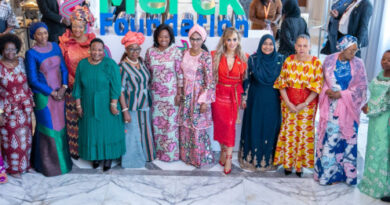Government Announces Key Developments and Budget Allocations for 2024
The Zambian government has recently unveiled a series of important developments and budget allocations aimed at fostering growth and development across the country. These initiatives cover various sectors and are poised to have a significant impact on the nation’s progress.
In a budget statement presented by the Minister of Finance and National Planning, Dr. Situmbeko Musokotwane, One of the notable announcements is the increase in the Constituency Development Fund (CDF) by K4.8 billion. This substantial boost means that each constituency will receive K30.6 million in 2024. This increase is expected to empower local communities to undertake development projects tailored to their needs.
The government is set to embark on the construction of industrial yards in Kitwe, Lusaka, and Ndola by year-end. These industrial yards are seen as critical infrastructure for driving economic growth and industrialization in these regions, potentially creating job opportunities and stimulating investment.
Another significant infrastructure development is the construction of airports in Kasaba Bay, Chinsali, and Choma in 2024. These airports will play a pivotal role in enhancing transportation and connectivity within Zambia, supporting tourism and trade.
The impending signing of the Katete – Chanida Road concession is poised to strengthen Zambia’s connectivity with Mozambique. This strategic road link is expected to facilitate trade and bolster regional integration.
To alleviate the burden on the Lusaka cancer hospital, the government plans to construct cancer hospitals in Ndola and Livingstone. These medical facilities will enhance access to cancer treatment and improve healthcare services in different parts of the country.
The government’s commitment to strengthening the healthcare sector is evident in its plan to hire an additional 4,000 health workers, building upon the 3,000 hired this year. This move aims to enhance healthcare delivery and accessibility, particularly in underserved areas.
In a bid to address the longstanding issue of unpaid council workers (LASF) from 2017 to 2021, the government has cleared these outstanding payments. Furthermore, the waiting period for such payments has been reduced to just one year, providing much-needed relief to affected workers.
The Social Cash Transfer program, aimed at providing financial assistance to vulnerable individuals and families, has seen a slight increase in beneficiaries, from 241,000 in 2022 to 242,000 this year. This expansion underscores the government’s commitment to social welfare.
The Food Reserve Agency (FRA) is set to release maize stocks directly to communities. This initiative seeks to ensure food security, stabilize maize prices, and make this essential staple food more accessible to the population.
To promote entrepreneurship and economic growth, the Citizens Economic Empowerment Commission (CEEC) has been allocated K392 million to support Small and Medium Enterprises (SMEs) development.
Schools will receive K1.9 billion in grants as part of the free education policy. This funding is expected to enhance the quality of education, provide access to essential learning resources, and improve the overall educational experience for students.
Finally, the government’s decision to increase the Pay As You Earn (PAYE) exempt threshold to K5,100 will offer tax relief to individuals, potentially increasing disposable income and improving the overall standard of living.
These comprehensive initiatives and budget allocations reflect the government’s dedication to addressing various sectors’ needs and promoting socio-economic growth and development throughout Zambia.



